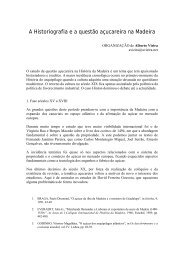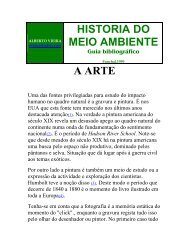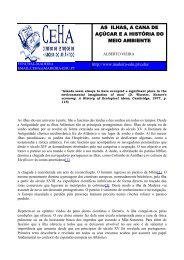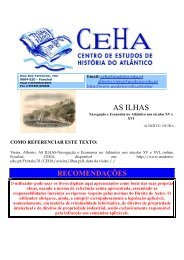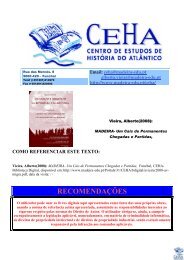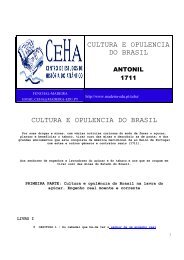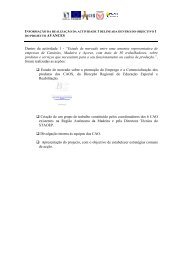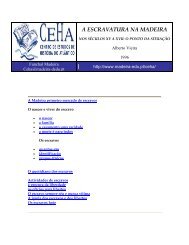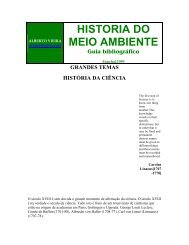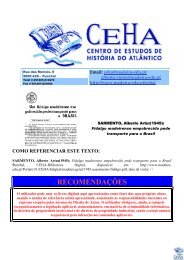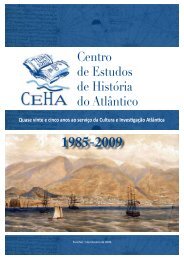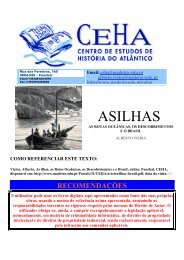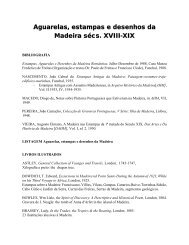SLAVERY IN MADEIRA
SLAVERY IN MADEIRA
SLAVERY IN MADEIRA
Create successful ePaper yourself
Turn your PDF publications into a flip-book with our unique Google optimized e-Paper software.
for the Guanches. As well as some words, considered by the linguistics as<br />
"Guanchismos".<br />
Of the possible reminiscences of the presence of slaves in the island we can still question<br />
the evolution of slavery in the XVIII and XIX centuries in Madeira. From the publishing<br />
of the law of 19 September 1761, applied in the island by the corrector Francisco Moreira<br />
de Matos in 1767, it was prohibited to enter in the island a British ship with slaves. This<br />
was an order given to Francisco Xavier Furtado de Mendonþa, and in 1768 this law was<br />
publicised by a proclamation. That is why since then no more registers of slaves entering<br />
Funchal's customs come up. This, was the first step to slavery abolition in Madeira.<br />
From here onwards it could only carry on through the slaves born on the island, which by<br />
the law of 16 January 1773 would become free. Slaves were only those born up to that<br />
date and the adults. The abolition is negotiated from the Treaty of Vienna (1815), but<br />
only in 1858 it reaches its plenitude. In the meantime, in Madeira, from the beginning of<br />
the XIX century it is difficult, if not impossible, to find the word slave on the documents,<br />
in definition of the social status of an individual. To note that from 1809 in the register of<br />
the entries in Funchal's Charity Hospice slave, is a word unknown to the scribe. The<br />
political convulsion created by the liberal revolution associated to the serious economic<br />
crisis felt on the island hurried its extinction.<br />
In the beginning of the XX century we had on the island again, the presence of Africans<br />
from Cabo Verde, who emerged as part of a campaign against starvation in their<br />
archipelago. One of those groups came to port in Ribeira Brava to work in public<br />
building in Pa·l da Serra, as an initiative of the Viscount of Ribeira Brava. The fact of this<br />
situation in more evidence is the expression of racist feelings in the columns of the<br />
newspaper from Ponta do Sol "A poca". This fact is faced as an insult to the islanders,<br />
who did not want the island to turn into an African settlement. At that same time another<br />
group of Africans worked on the road of connection of the Curral dos Romeiros that<br />
would be come known as Caminho dos Pretos (The Blacks' way).




